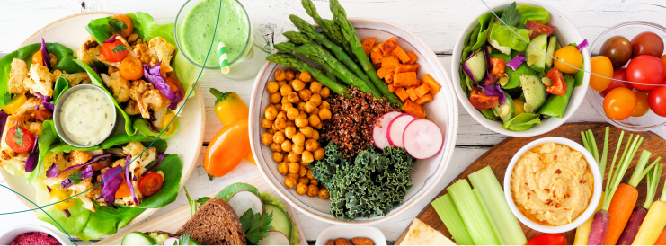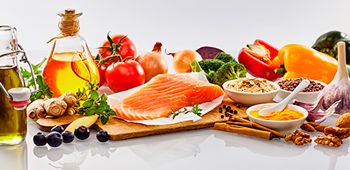
We are in the era of “detox” type diets. The internet and social media are filled with all kinds of detox programs and diets that promise to detoxify your body, give you more energy, eliminate fat and help you lose weight, all in just a few days. Some programs require fasting or having only juices or liquids such as teas or broths, and others let you have some types of fruits or vegetables.
Although many people report positive results, most detoxers end up feeling very hungry and a little weak. A diet so restrictive in calories and nutrients may lower your blood sugar to the point of feeling dizzy or nauseous and it can also produce headaches, lack of energy and a lousy mood.
But why are these detox programs and diets so popular anyway? Part of their appeal is the fact that they promise to cleanse your whole system; which responds to the fact that, to some extent, we are all aware of the potential dangers of the standard American diet and may even feel some guilt regarding our food choices.
If you decide to do a detox program to lose weight, you will certainly shed a couple of pounds, but chances are you’ll gain them all back as soon as you return to regular eating. Another thing to consider is that when we radically restrict calories for a long period of time, our metabolism slows down.
If you are interested in “cleaning” your system, the truth is that there are better ways to do it than going on a detox diet. The human body, in its perfection, has an integrated system to detoxify itself that involves the digestive system, the liver, kidneys, lungs and even the skin, and any doctor will tell you that toxins do not “accumulate” in the liver, kidneys, or any other part of the body, like some detox programs argue.
But let’s look at the facts for a moment; if you change a diet high in processed foods, fat, sugar and salt for one high in whole foods like vegetables, fruits, lean meats, seeds, nuts and grains, the change will do wonders for your system because you are substituting inflammatory foods for foods high in macro and micro nutrients that work in perfect sync with your body and allow its functions to run optimally, including detoxification.
Despite all of this, detox programs will continue to be popular and they may even have some benefits if done for a brief period of time and used as a stepping stone towards a healthier diet and lifestyle. But a detox program, especially if it involves fasting or having juices exclusively is not recommended for people with certain diseases, especially those who suffer from diabetes and women who are pregnant or nursing. Having a detox diet at these stages might be dangerous and could carry dire consequences.
The exception to this rule would be the detox diets that focus on clean and balanced eating and that focus on vegetables, fruit, water, protein and healthy fats. This type of diet will certainly have a positive impact on conditions such as hypertension, high cholesterol, diabetes and all kinds of diseases. Certain people may also benefit from a program that limits gluten and dairy. So, diet changes should depend mostly on each patient’s specific needs and not on a preconfigured one-for-all detox program.
Also, the main purpose of a healthy lifestyle and diet should focus on health and quality of life, more so than just losing weight or obtaining a certain type of physique. Focusing on rapid weight loss and losing track of nutrition might lead to malnutrition, anemia and lean muscle loss, which in itself carries different health risks and may reduce quality of life.
If juices are what attract you from a detox programs, don’t hesitate to add them to your diet; just be sure that they are natural, made with vegetables and only one fruit. An all-fruit juice can become a glycemic bomb, no matter how freshly pressed it may be. A green vegetable juice can be an excellent addition to your diet and you can enjoy it as a snack or as part of your breakfast.
Nowadays we are more exposed to toxins than our parents and grandparents were, so it is important to help the body’s detoxification functions. We can easily achieve this by limiting processed foods, eating more fruits and vegetables (mostly leafy greens), drinking enough water, exercising, and, believe it or not, breathing deeply and consciously throughout the day.
Don’t get carried away by fads and make sure you take safe steps in terms of your diet.
Contact us
At LIMARP International Center of Excellence for obesity, we offer integral bariatric programs that include either surgical or non-surgical treatments, nutritional guidance, psychological counselling, personalized fitness plans and long-term follow-up.
If you need further guidance or want to solve your excess weight or obesity problem contact us; our team is at your service and we can help! For a free evaluation please call LIMARP International Center of Excellence for Obesity at (664) 686 2542 or fill out a contact form at www.limarp.com


